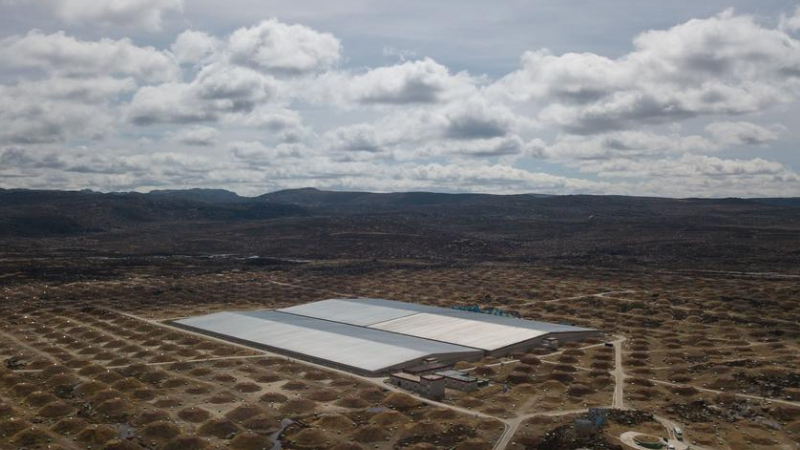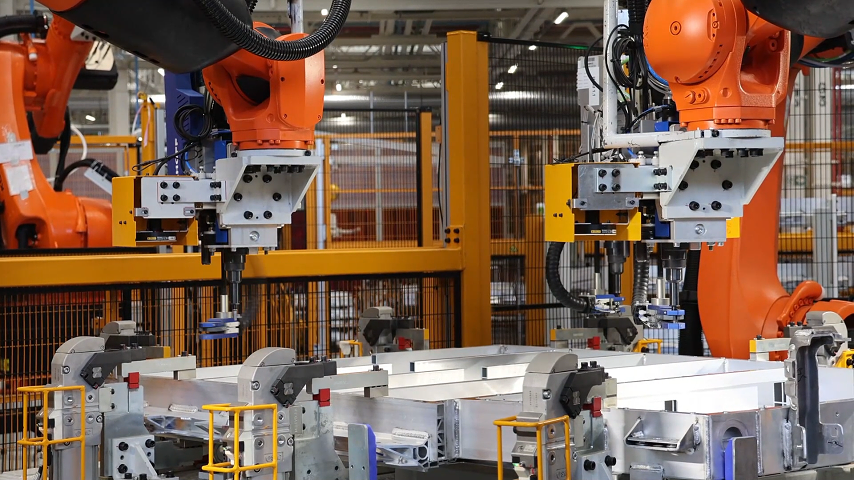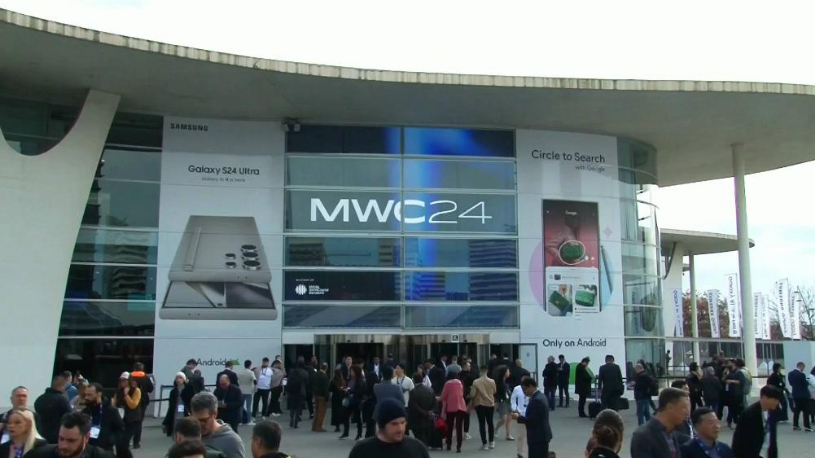
Coffee beans are seen inside a store in Manila, the Philippines, on Feb. 7, 2024. (Xinhua/Rouelle Umali)
The Philippines lies in the "coffee belt," a region conducive to growing quality coffee trees. Thanks to its rich volcanic soil and warm climate, the archipelago once stood as one of the world's leading coffee producers.
by Xinhua writers Dario Agnote, Zhang Yisheng
MANILA, March 1 (Xinhua) -- Jethro Agnote, a real estate brokerage marketing specialist in Metro Manila, has joined the growing, trendy group of Filipino coffee connoisseurs.
To create his own "magical cup," the 25-year-old Filipino said he has attended several classes on cuppings and roastings to taste different flavor profiles from varieties and explore the diversity of taste in varietal coffees from specific origins and coffee blends.
"I get to taste and explore the flavor of the beans from different origins and savor the aromas that a particular coffee bean gives off," Agnote said.
PERSONAL EXPERIENCE PREVAILS
Specialty cafes generally rely on word-of-mouth to sell their brands and reach more coffee addicts. Satisfied coffeeholics often share their personal experiences and reviews on social media, creating a strong online presence.
For Jared Roberto and Max Yray, two skilled baristas in Manila, capital of the Philippines, personal branding is the key to advertising, leading to hotting-up competition among coffee houses in the country.
"I introduce pour-over coffee to them. I share my coffee bean stash with regular customers and describe the notes they will taste and how it was processed and brewed," Roberto told Xinhua.

Shots of freshly-pressed coffee are seen inside a cafe in Manila, the Philippines, on Feb. 7, 2024. (Xinhua/Rouelle Umali)
Yray applied the same marketing strategy to his coffee house. "We focus on making customers feel at home. People go to coffee houses to have the warm feeling of having others around, to be part of the hustle and bustle," Yray said.
He said the best way to win customers' hearts into specialty brew is to give them, especially first-timers, an idea of the coffee they are getting.
"People nowadays explore coffee shops for more diverse and complex coffee flavors and to have more profound coffee experiences that commercial coffee shops cannot offer," Yray said.
"As a barista, I give the customers more reason to return," he added.
INDUSTRY REVIVAL
The Philippines lies in the "coffee belt," a region conducive to growing quality coffee trees. The country's coffee cultivation dates back to the 18th century during the Spanish colonial era. Thanks to its rich volcanic soil and warm climate, the archipelago once stood as one of the world's leading coffee producers.
However, when the leaf rust reached its shores, almost all coffee trees were destroyed, costing the local people considerable time to resume coffee tree cultivation.
Recent years have seen a renewed interest in Philippine coffee as the government aims to make the relevant industries bloom again.
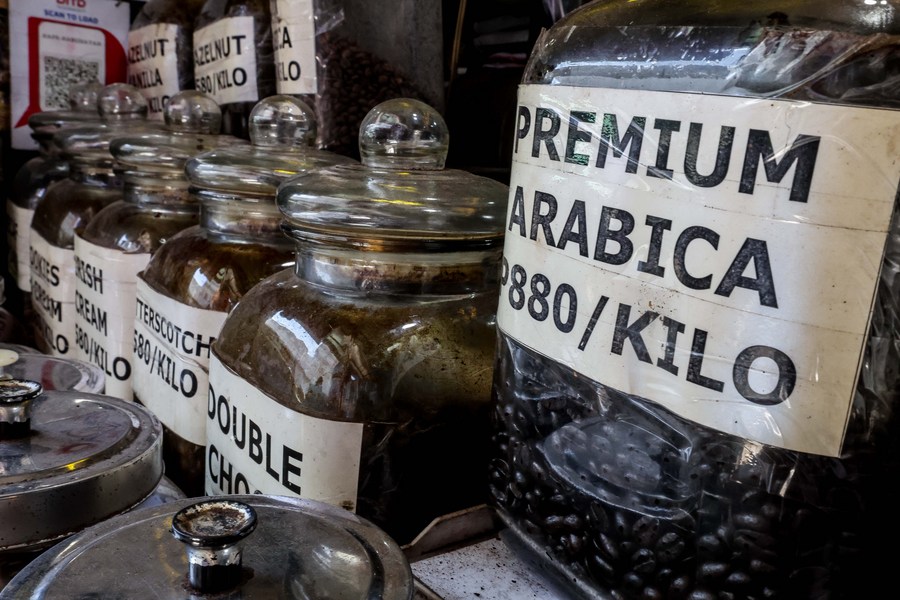
Coffee beans of various flavors are seen inside a store in Manila, the Philippines, on Feb. 7, 2024. (Xinhua/Rouelle Umali)
Perked up by Filipinos' thirst for coffee, the Philippine government has drawn up a plan to revitalize its once-glorious coffee industry amid soaring demand for the beans.
The government said it believes that the country still has "a great chance" to extensively cultivate and produce the beans "if given sufficient and proper support in terms of inputs, rural credit, post-harvest, and marketing, among others."
To achieve this, the Philippines' Department of Agriculture has collaborated with coffee stakeholders, including officials, experts, and enthusiasts, to craft a strategy to boost coffee production and resurrect the industry.
In 2021, the country unveiled a coffee industry roadmap. Many analysts said the roadmap could empower Filipino coffee farmers with the knowledge and tools to produce quality beans, expand coffee farms to increase and sustain the beans' output and urge Filipinos to invest in coffee amid the Filipinos' growing love for the beverage.
"The journey of the Philippines' coffee industry, from colonial beginnings to decline and now a renaissance, reflects a newfound focus on quality, sustainability, and local consumption," Brian James Lu, a Philippine columnist, wrote in an opinion article.
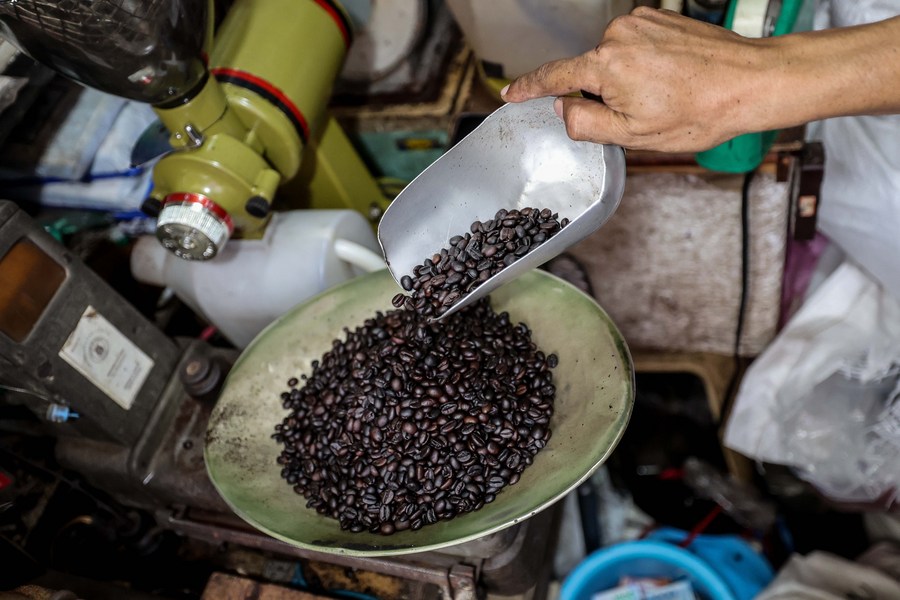
A vendor grinds coffee beans inside his store in Manila, the Philippines, on Feb. 7, 2024. (Xinhua/Rouelle Umali)
In January, De La Salle University, a leading university in the Philippines, began to offer the country's first coffee science elective course on the "chemistry of coffee," which involved setting up a laboratory for coffee experiments.
The university said it hopes its "first multidisciplinary elective" program will pique the young student's interest in the art of coffee to help revive the industry.
Agnote has participated in several local coffee-themed events. He bought several pieces of equipment, such as a brewer, a carafe, a small digital scale, and a gooseneck kettle to create a cup that suits his taste preferences.
"Over time, the popular flavors we enjoy now will become classic and inextricably woven into the fabric of Filipino culture," he said.■




